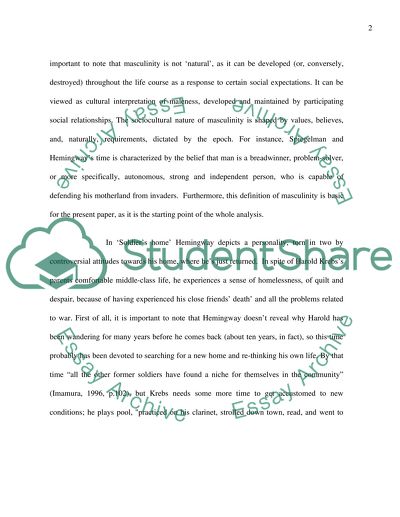Cite this document
(“War trauma and masculinity Essay Example | Topics and Well Written Essays - 2250 words”, n.d.)
Retrieved from https://studentshare.org/miscellaneous/1530717-war-trauma-and-masculinity
Retrieved from https://studentshare.org/miscellaneous/1530717-war-trauma-and-masculinity
(War Trauma and Masculinity Essay Example | Topics and Well Written Essays - 2250 Words)
https://studentshare.org/miscellaneous/1530717-war-trauma-and-masculinity.
https://studentshare.org/miscellaneous/1530717-war-trauma-and-masculinity.
“War Trauma and Masculinity Essay Example | Topics and Well Written Essays - 2250 Words”, n.d. https://studentshare.org/miscellaneous/1530717-war-trauma-and-masculinity.


